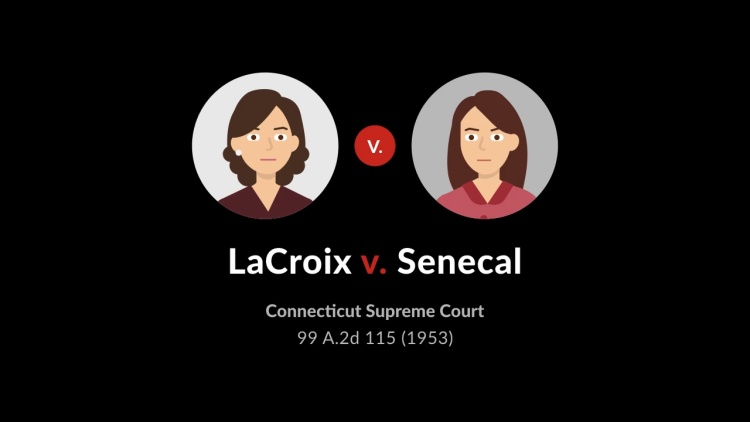LaCroix v. Senecal
Connecticut Supreme Court
99 A.2d 115 (1953)

- Written by Christine Raino, JD
Facts
Celestine L. Dupre executed a will on March 26, 1951, with a clause leaving one-half of the residue of her estate to “my nephew, Nelson Lamoth of Taftville Connecticut” and the other half to Aurea Senecal (defendant). She then executed a codicil revoking the residuary clause of her will in order to replace with a new residuary clause that gave one-half of the residue of her estate to “my nephew Marcisse Lamoth of Taftville Connecticut, also known as Nelson Lamoth” and the other half to Aurea Senecal. One of the attesting witnesses to the codicil was Senecal’s husband. Pursuant to state statute, however, a bequest to the spouse of an attesting witness is void so that the witness’s competency to testify in support of probate is not impacted by the gift. Upon the petition of Dupre’s niece (plaintiff), Dupre’s heir at law, the probate court admitted the will to probate. Although the probate court found that the gift to Senecal under the codicil was void, the probate court nevertheless found the gift to Senecal under the original will to be valid. Dupre’s niece appealed to the Connecticut Supreme Court.
Rule of Law
Issue
Holding and Reasoning (Brown, J.)
What to do next…
Here's why 911,000 law students have relied on our case briefs:
- Written by law professors and practitioners, not other law students. 47,100 briefs, keyed to 997 casebooks. Top-notch customer support.
- The right amount of information, includes the facts, issues, rule of law, holding and reasoning, and any concurrences and dissents.
- Access in your classes, works on your mobile and tablet. Massive library of related video lessons and high quality multiple-choice questions.
- Easy to use, uniform format for every case brief. Written in plain English, not in legalese. Our briefs summarize and simplify; they don’t just repeat the court’s language.





